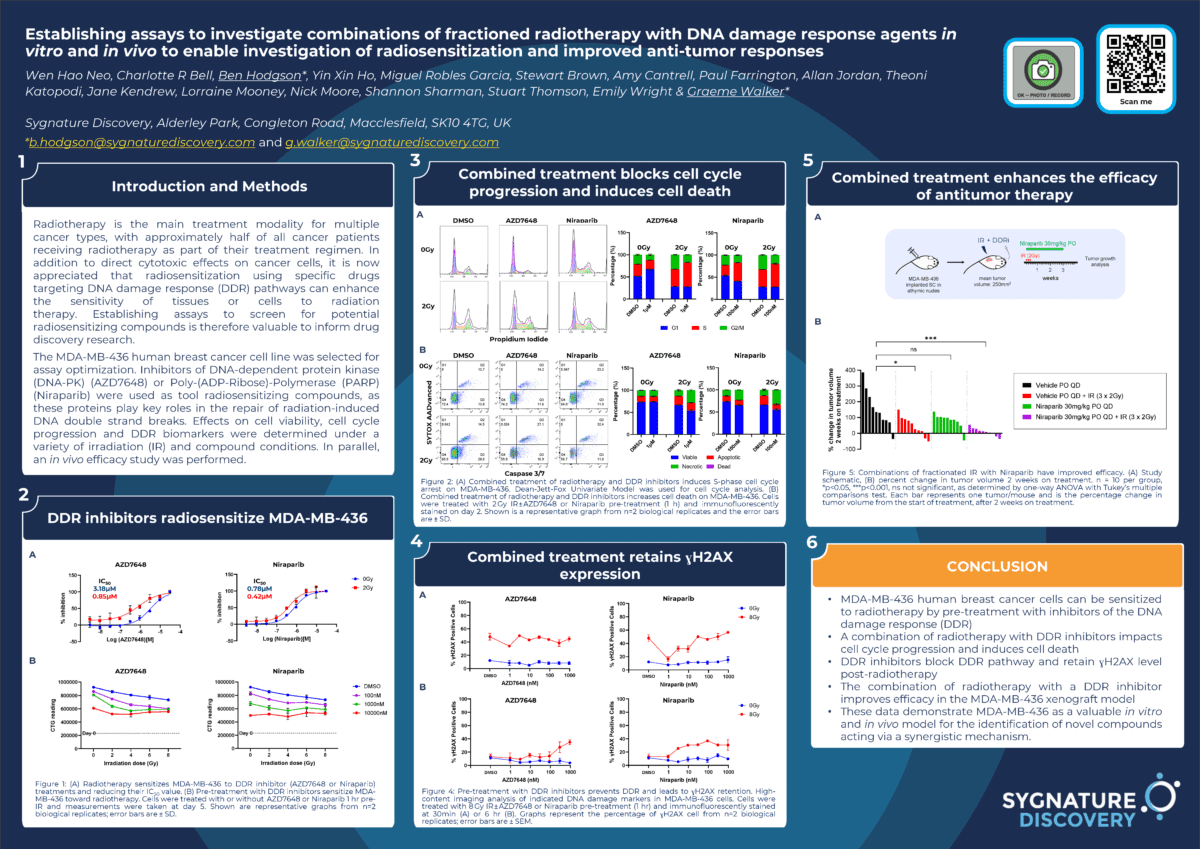Establishing assays to investigate combinations of fractioned radiotherapy with DNA damage response agents in vitro and in vivo to enable investigation of radiosensitisation and improved anti-tumour responses.
Radiotherapy is the main treatment modality for multiple cancer types, with approximately half of all cancer patients receiving radiotherapy as part of their treatment regimen. In addition to direct cytotoxic effects on cancer cells, it is now appreciated that radiosensitisation using specific drugs targeting DNA damage response (DDR) pathways can enhance the sensitivity of tissues or cells to radiation therapy. Establishing assays to screen for potential radiosensitising compounds is therefore valuable to inform drug discovery research.
At Sygnature Discovery, we have recently validated the in vitro and in vivo methodology to screen for potential radiosensitising compounds using the MDA-MB-436 human breast cancer cell line. Inhibitors of DNA-dependent protein kinase (DNA-PK) (AZD7648) or Poly-(ADP-Ribose)-Polymerase (PARP) (Niraparib) were used as tool radiosensitizing compounds, as these proteins play key roles in the repair of radiation-induced DNA double-strand breaks. Effects on cell viability, cell cycle progression and DDR biomarkers were determined under a variety of irradiation (IR) and compound conditions. In parallel, an in vivo efficacy study was performed.

